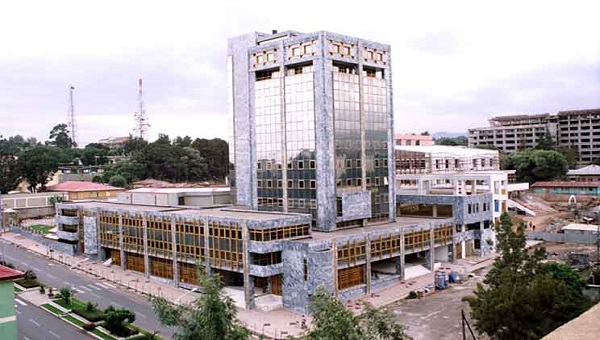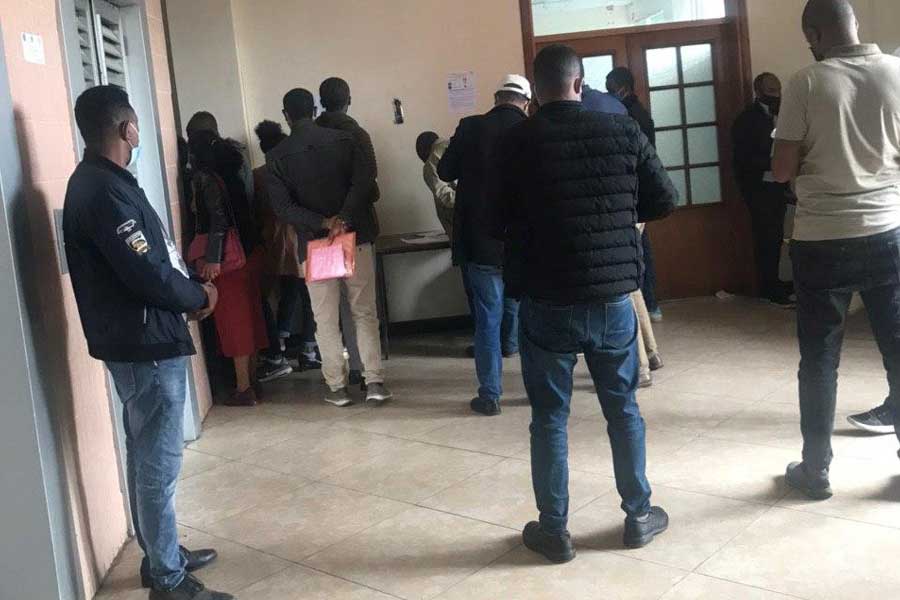
Dec 7 , 2019
By TEMESGEN MULUGETA ( FORTUNE STAFF WRITER )
The Customs Commission is set to force importers to remove their goods from its warehouse within two weeks from the day they are stocked.
Previously, importers could store their goods for up to two months until they can collect the goods after paying taxes and duties.
Importers are expected to remove their goods within two weeks, and if they fail to comply with the new time frame, they will pay an additional 20pc as a form of penalty, according to the new procedure.
"The previous process restricted us from managing the warehouse promptly. It prevented us from getting the income we would have if goods had been moved on time," said Aklilu Mengistu, transit & warehouse director at the Commission.
“Some goods stay in the port for a long time," he said. “The main aim of the new procedure is to remove goods from the port before being stored for extended periods."
Initially, the Commission had a plan to implement the new procedure starting from September 30, 2019. But considering the number of stored goods, the Commission decided to give an adequate period for them to be cleared, and then enforce the regulation beginning on December 10, 2019.
Goods of government institutions can be stored at the port for up to one year, while private businesses have to take theirs out within two weeks.
The new procedure was introduced after the new proclamation was legislated in September 2019.
The Customs Commission was established in 2018 after it branched out from the then Ethiopian Revenues & Customs Authority, which recently changed its name to the Ministry of Revenues. Under the new structure, the Commission is in charge of customs and duty matters and reports to the Ministry.
An importer, who spoke on the condition of anonymity, complained that the customs process has long procedures, and it is challenging to complete the process within the two-week time frame.
"The paperwork and the bank process will not be completed in time, and this will be one of the major problems to comply with the regulation," the source said.
Currently, Modjo, Qality, Gelan, Semera, Dire Dawa, Kombolcha and Meqelle are the seven dry ports that are used to store, load and unload containers of goods.
These dry ports have an aggregate capacity of hosting 24,000 containers at a time and handle over 90pc of the country's import-export business, which stands at around three billion dollars worth of goods a year.
The main one is Modjo Dry Port, which is located in the eastern inlet of Addis Abeba. Established a decade ago, it hosts 78pc of the country’s shipping and logistics services.
Private players and international institutions have criticised Ethiopia for lagging in logistics operations and out of 190 countries, Ethiopia is ranked 117 in the World Bank's latest Logistics Performance Index, which ranks nations' efficiency of logistics operations.
Yohannes Woldegaberiel, a tax law expert who was a prosecutor of the former Ethiopian Revenues & Customs Authority, believes that the decision of the Commission will have a negative impact on importers.
“There had to be enough discussion before implementing the new procedure,” Yohannes said. "The importers have a problem of liquid cash, so the Commission has to take this into account."
PUBLISHED ON
Dec 07,2019 [ VOL
20 , NO
1023]

Fortune News | Oct 03,2020

Verbatim | Oct 19,2019

Radar | Nov 02,2019

Fortune News | Nov 09,2019

Fortune News | Jul 13,2019

Fortune News | Jun 08,2019

Radar | Jun 04,2022

Fortune News | Jul 22,2023

Fortune News | Aug 29,2020

Fortune News | Jan 11,2020

Dec 22 , 2024 . By TIZITA SHEWAFERAW
Charged with transforming colossal state-owned enterprises into modern and competitiv...

Aug 18 , 2024 . By AKSAH ITALO
Although predictable Yonas Zerihun's job in the ride-hailing service is not immune to...

Jul 28 , 2024 . By TIZITA SHEWAFERAW
Unhabitual, perhaps too many, Samuel Gebreyohannes, 38, used to occasionally enjoy a couple of beers at breakfast. However, he recently swit...

Jul 13 , 2024 . By AKSAH ITALO
Investors who rely on tractors, trucks, and field vehicles for commuting, transporting commodities, and f...

Jun 28 , 2025
Meseret Damtie, the assertive auditor general, has never been shy about naming names...

Jun 21 , 2025
A well-worn adage says, “Budget is not destiny, but it is direction.” Examining t...

Jun 14 , 2025
Yet again, the Horn of Africa is bracing for trouble. A region already frayed by wars...

Jun 7 , 2025
Few promises shine brighter in Addis Abeba than the pledge of a roof for every family...